By Lucy Komisar
October 22, 2009
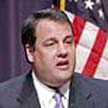
Back in 2004, when Chris Christie was the U.S. Attorney for New Jersey, his office heard allegations that IDT Corporation, a Newark, N.J.-based global telecommunications company, was involved in a case of international bribery. No federal criminal case was brought against IDT, in contrast to several successful federal prosecutions in similar cases elsewhere. However, in June, in its last filing with the Securities and Exchange Commission (SEC), IDT indicated that the investigation was continuing. The company is headed by James Courter, a former Republican congressman from New Jersey. 
Fast forward to the present, and Christie is now the Republican candidate for the governor of New Jersey. And, an examination of campaign finance records shows, Christie has thus far racked up $26,800 in campaign contributions – earning him a total of $80,400 including state matching funds ” from 27 individuals who could have a direct interest in the IDT case.
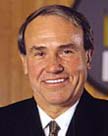
Among those campaign contributors, 17 work directly for IDT, including eight employees who live out of state. The others work either for the company‘s law firm, Latham & Watkins, or for the law firm founded by James Courter, who till yesterday was IDT chief executive. Courter, a Republican congressman from 1983 to 1991, and the G.O.P. nominee for New Jersey governor in 1989, has long been a player in New Jersey G.O.P. political circles.
Christie, an appointee of former President George W. Bush, is locked in one of the most closely-watched elections of this year. He is challenging Jon Corzine, the incumbent Democratic governor and former Goldman Sachs C.E.O.
The Republican has cast himself as a warrior in the fight against corruption–from 2002 to 2008, his office successfully pursued 130 corrupt local officials. But Democrats and defense attorneys charge that he let politics influence whom he targeted, and Corzine is seeking Christie‘s emails to see why some cases weren‘t prosecuted.
The IDT case is not one of those that, thus far, Corzine has demanded information about. However, Sean Darcy, communications director for the Corzine campaign, who brought the campaign contributions to the attention of this reporter, said, “This situation is consistent with Christie‘s established pattern of having one set of rules for himself and another for everyone else. It is not the first time that someone spared criminal charges has become a key player in his campaign fundraising.”
The trail that connects the U.S. attorney‘s office during the Christie years to IDT began in November 2003 when J. Michael Jewett, who had been the IDT executive in charge of business in the Caribbean, was fired. Jewett claimed in a wrongful dismissal lawsuit filed the following March that he was let go because he objected to a deal between IDT and Haiti Teleco, the Haitian phone company.
“I was fired because I objected to a transaction which involved diverting payments from Teleco Haiti to a bank account located in an off shore jurisdiction,” Jewett says in response to written questions. He says that he told IDT officials about his misgivings. “I objected to it on legal, ethical and moral grounds.”
According to the contract between Haiti Teleco and IDT, the Haitian phone company directed IDT to send payments that were made for U.S.-Haiti phone calls not to Haiti, but to a shell company, Mont Salem, in the offshore Turks & Caicos Islands, a bank and corporate secrecy haven. Read the contract.

The arrangement included potentially hundreds of thousands of dollars in kickbacks to Haiti‘s president at the time, Jean-Bertrand Aristide, in exchange for a sweetheart deal to supply long-distance phone service to Haiti, according to claims made in both Jewett‘s lawsuit and a separate suit filed by the Haitian government after Aristide was forced from office.
Often Foreign Corrupt Practices Act (FCPA) cases are run out of Washington, which must authorize them, but the rules allow investigations and prosecutions to be carried out by local U.S. Attorneys, and New Jersey is one of the jurisdictions where that happens. Department rules call for close coordination with the State Department, SEC and other interested agencies. The Justice Department would not comment on the status of the case.
Jewett‘s lawyer, William Perniciaro, said in an interview that federal officials at first seemed committed to the case. “They jumped into the case in 2004,” Perniciaro said, explaining that he and Jewett met with senior lawyers in Christie‘s office, the deputy chief of the New Jersey criminal division, a lawyer from the SEC, and the assistant deputy attorney general who handles cases under the Foreign Corrupt Practices Act.
“None of these people are low level officials. I was impressed with them, that‘s for sure.” Perniciario said four meetings took place in 2004, 2005 and 2006 at the U.S. attorney‘s office in Newark. He said, “In June 2004 we met with Peter Clark [Deputy Chief of the Fraud Section of the Criminal Division of the Justice Department], Amy Winkelman [Deputy Chief of the Criminal Division of the Justice Department in New Jersey], Stuart Rabner [an Assistant U.S. Attorney in Christie’s office], Eric Hanson [an SEC lawyer], and an FBI agent who should not be named. After that the meetings were with Amy, and a representative of the FBI.” He added, “They didn‘t express doubt about Michael.”
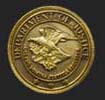 Peter Clark, now in private practice, said the matter had been “looked at in conjunction with the U.S. Attorney‘s office in Newark.” Clark is a noted expert on the Foreign Corrupt Practices Act. As Deputy Chief of the Fraud Section 1991 to 2006, Mr. Clark was responsible for all of the Department‘s FCPA investigations and prosecutions.
Peter Clark, now in private practice, said the matter had been “looked at in conjunction with the U.S. Attorney‘s office in Newark.” Clark is a noted expert on the Foreign Corrupt Practices Act. As Deputy Chief of the Fraud Section 1991 to 2006, Mr. Clark was responsible for all of the Department‘s FCPA investigations and prosecutions.
He explained that the Justice Department‘s Criminal Division is responsible for investigating and prosecuting FCPA cases because of their foreign policy implications. But he said, “The department invariably will invite a U.S. Attorney‘s office to investigate and prosecute jointly with the fraud section of the criminal division.” He said that “New Jersey is one of those districts where they have always said we‘ll do this jointly with you.”
Perniciaro and his client didn‘t meet with Christie. But he sent him a letter informing him of the Jewett suit soon after he filed it. (IDT later unsuccessfully sought court censure of Perniciaro for sending the letter.) As the U.S. Attorney cooperating in the subsequent DOJ investigation – in which his staff participated for several years ” Christie would have been involved in advising on the final decision about whether or not to prosecute.
Perniciaro said that after the meetings, he stopped hearing from federal officials. “They haven‘t called in 2 or 3 years.” Under the Victim and Witness Protection Act, federal prosecutors are supposed to keep victims apprised of milestone events in the prosecution. That hasn’t been done.

At about the same time that Perniciario brought Jewett‘s case to the attention of federal authorities, Alice Fisher”a partner at Latham & Watkins, IDT‘s law firm”conducted an internal investigation of the matter. She concluded that IDT‘s dealings with Haiti Teleco were legal.
Based on Fisher‘s opinion, IDT declared in an October 2004 Securities and Exchange Commission filing that, “Neither the Company‘s nor the Audit Committee‘s investigation has found any evidence that we made any such improper payments to foreign officials.” Fisher didn‘t mention that IDT was sending payments to Mont Salem, the company in Turks & Caicos. Privately, she wrote the company to stop doing it.
Fisher went to work for the Justice Department in 2006 and stayed until May 2008 when she returned to Latham & Watkins. Although she isn‘t a New Jersey resident, she contributed $1,000 to Christie‘s gubernatorial campaign.
IDT‘s interests would have been supported by the Bush Justice Department once the matter moved up the chain from department lawyers to the political decision-makers. Fisher would have recused herself, though neither she nor the Department will confirm that on the record. The Department will also not confirm that there has been an investigation, though in its 2004 annual report, IDT stated that the Department of Justice, the Securities and Exchange Commission and the United States Attorney in Newark, New Jersey have initiated investigations of Jewett’s allegations.
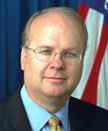
At any rate, taking marching orders from Bush political advisor Karl Rove, Justice had better things to do than to go after a prominent Republican. The investigation into the Rove‘s use of Justice for political ends found that nine U.S. attorneys who refused to take orders to ignore or target cases according to Republican political interests were fired.
Christie wasn‘t one of them. He was a Bush appointee chosen for the job in spite of a state federal bar association objecting because he did not have trial, criminal law or investigative experience. Testifying in July before the House Judiciary Committee investigating Bush administration Justice Department abuses, Rove admitted talking to Christie several times while at the White House, but said it was only about the possibility of Christie running for governor.
Rove would have also been concerned that the IDT board of directors was stacked with high-level Republicans, including Rudy Boschwitz, former senator from Minnesota; James S. Gilmore III, former Virginia governor; Thomas Slade Gorton III, former senator from Washington State; Jack Kemp, former congressman from New York and 1996 vice presidential nominee; and Jeane Kirkpatrick, U.S. ambassador to the U.N. under President Ronald Reagan. The company revealed in November 2006, a month after Fisher was confirmed, that they would not run for re-election to the board.
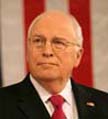
Courter also had a good friend in Vice President Dick Cheney. When Net2Phone, an IDT internet phone company, went public in 1999, Cheney was invited to buy 1,000 initial shares at the insider price of $15,000. He sold them the same day for $26,574, a neat profit of 77.2 percent.
Another case that would have exposed IDT’s alleged bribery was eventually stymied, it would appear, by Justice Department failure to turn over funds that could have supported it. In the fall of 2005, the Haitian government prepared to file a suit in U.S. federal court in Miami against Haitian officials, including Aristide, that detailed their dealings with IDT. Haiti‘s lawyers from the Washington firm of Winston & Strawn were in touch with the U.S. government‘s Haiti task force, a group led by the Treasury Department but which included officials from Justice.
Marc Palay, the Winston & Strawn lawyer who handled the case, said: “We coordinated with the Justice Department and kept them informed of what we were doing.” Another individual who was involved with the case said the Justice Department expressed concern that a lawsuit from the Haitian government would impede its own investigation of potential corruption involving IDT. To reassure Justice officials, the lawyers sent Justice a draft of the lawsuit before filing it in November, 2005.
To pursue its lawsuit against Aristide and other Haitian officials, the Haitian government sought to use $2.9 million obtained from busts of Haitian drug dealers who were arrested by U.S. agents with the aid of the Haitian government. Normally, countries get a take of the U.S. haul when they cooperate on drug cases and Palay said the Haitian government was interested in doing just that.
But Palay said nothing happened and the Haitian government eventually withdrew the lawsuit because it didn‘t have the funds to pursue it on its own. “We were never able to complete the negotiations with the Justice Department. They never gave us an official reason,” he said. “They understood we wanted to use the money for the lawsuit.
Even though the Haitian lawsuit fizzled, the wrongful termination suit brought by Jewett”the former IDT executive who first raised questions about the company‘s dealings with Haiti Teleco”continued. But it‘s had problems along the way.
Federal Magistrate Judge Marc Falk (a locally appointed judicial officer who handles the day-to-day business of the case) sealed Jewett‘s March 2004 complaint on grounds it would reveal vital proprietary secrets, ie the price. The initial skirmishes on “sealing” took two years. Some parts of the complaint are still sealed. When Perniciaro submitted interrogatories to IDT asking what the executives knew about the deal with Haiti Teleco and their understanding of its lawful basis, he was held in contempt by Federal Judge John Lifland (the Ronald Reagan-appointed federal judge on the case) and fined $30,000 in July 2006.
Four months after the contempt ruling, Perniciaro submitted a Writ of Mandamus to the U.S. Court of Appeals for the Third Circuit to force the court to move discovery forward. Only then did Falk order full discovery in the case, which allowed depositions to be taken. The “proprietary” information turned out to be IDT‘s procedures for handling the alleged kickback scheme and its unlawfully obtained discount. A trial is expected to occur early next year.
In December 2006”more than three years after he stopped working at IDT”Jewett offered written answers to a series of questions about the case from IDT‘s lawyers. The interrogatory in February 2007 was accidentally filed by IDT‘s lawyer to the court via Pacer, the U.S. government‘s online court documents service. It is attached here. The court later sealed the document at IDT’s request.
In his sworn statement, Jewett talks about his contacts with several senior IDT officials, who are described as defendants in the lawsuit. He also says the Justice Department and the Securities and Exchange Commission “have instituted investigations into the Teleco Haiti deal.”
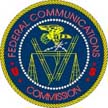 Meanwhile, another federal agency did find fault with IDT over its Haiti relationship. The Federal Communications Commission determined that IDT failed to publicly file its contract with Haiti Teleco. This led to an FCC fine against IDT for $1.3 million in 2008, a fine which was later reduced to $400,000.
Meanwhile, another federal agency did find fault with IDT over its Haiti relationship. The Federal Communications Commission determined that IDT failed to publicly file its contract with Haiti Teleco. This led to an FCC fine against IDT for $1.3 million in 2008, a fine which was later reduced to $400,000.
In response to Freedom of Information Act requests last year, the FCC provided documents that showed that IDT had violated commission rules because it hadn’t filed contracts for any of the more than 200 foreign countries on the FCC list of routes. At the same time, the company‘s international traffic data for 2005 listed revenues of $7.4 billion for 91.6 billion minutes of calls between the U.S. and all foreign “points.”
This reporter was the first to report about the fine in July 2008, noting that Courter, the IDT chief executive, was at the time one of Republican presidential nominee John McCain‘s 20 national finance co-chairs. Courter resigned from his position with the McCain campaign following the story‘s publication.
Courter donated the legal limit of $3,400 to Christie‘s gubernatorial primary campaign. Besides Courter, the 17 IDT employees who gave to Christie‘s campaign contributed between $100 and $500 each, either for the primary or the general election. A political action committee identified with IDT gave the $3,400 limit for Christie‘s primary campaign. Most of the contributions, including those from Courter and the PAC, were made on May 13, which indicates they might have been bundled.
The Justice Department wouldn‘t comment on its handling of the IDT case. But outside of New Jersey, successful prosecutions cases have been brought against other U.S. telecoms for cutting illegal deals with foreign governments, including the Aristide government in Haiti.
In May, the U.S. Attorney‘s office for the Southern District of Florida announced the plea agreements of two men for their “roles in a conspiracy to pay and conceal more than $1 million in bribes to former Haitian government officials,” the same officials who allegedly received bribes in the IDT case. The men”the president of a Miami-based intermediary and the former controller of a Miami-based telecommunications company”pled guilty to violating the Foreign Corrupt Practices Act. Executives of the companies were listed by title but not name as co-conspirators, which would mean the investigation is continuing.
And in another South Florida case, the company Latinode pleaded guilty in April to violating the FCPA and agreed to pay a $2 million fine for making improper payments in Honduras and Yemen in order to get telecommunications contracts in those countries.
Christie and Courter did not respond to numerous phone calls and emails requesting comment.

